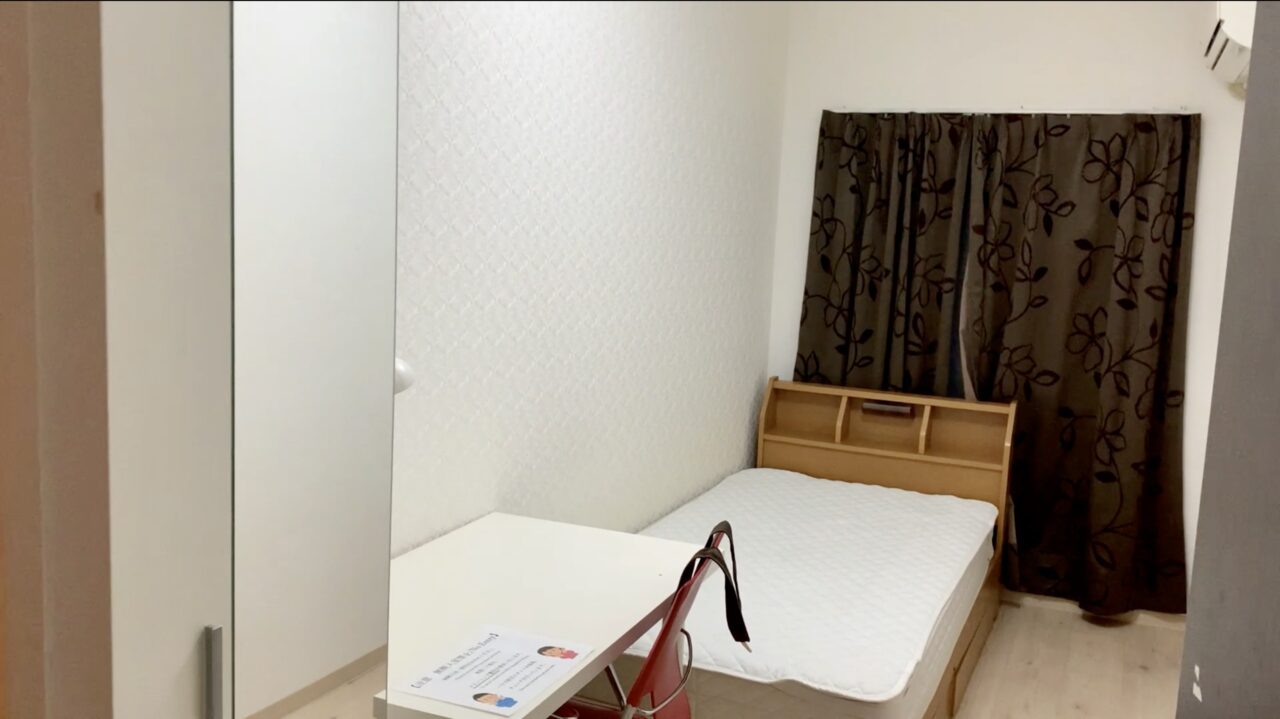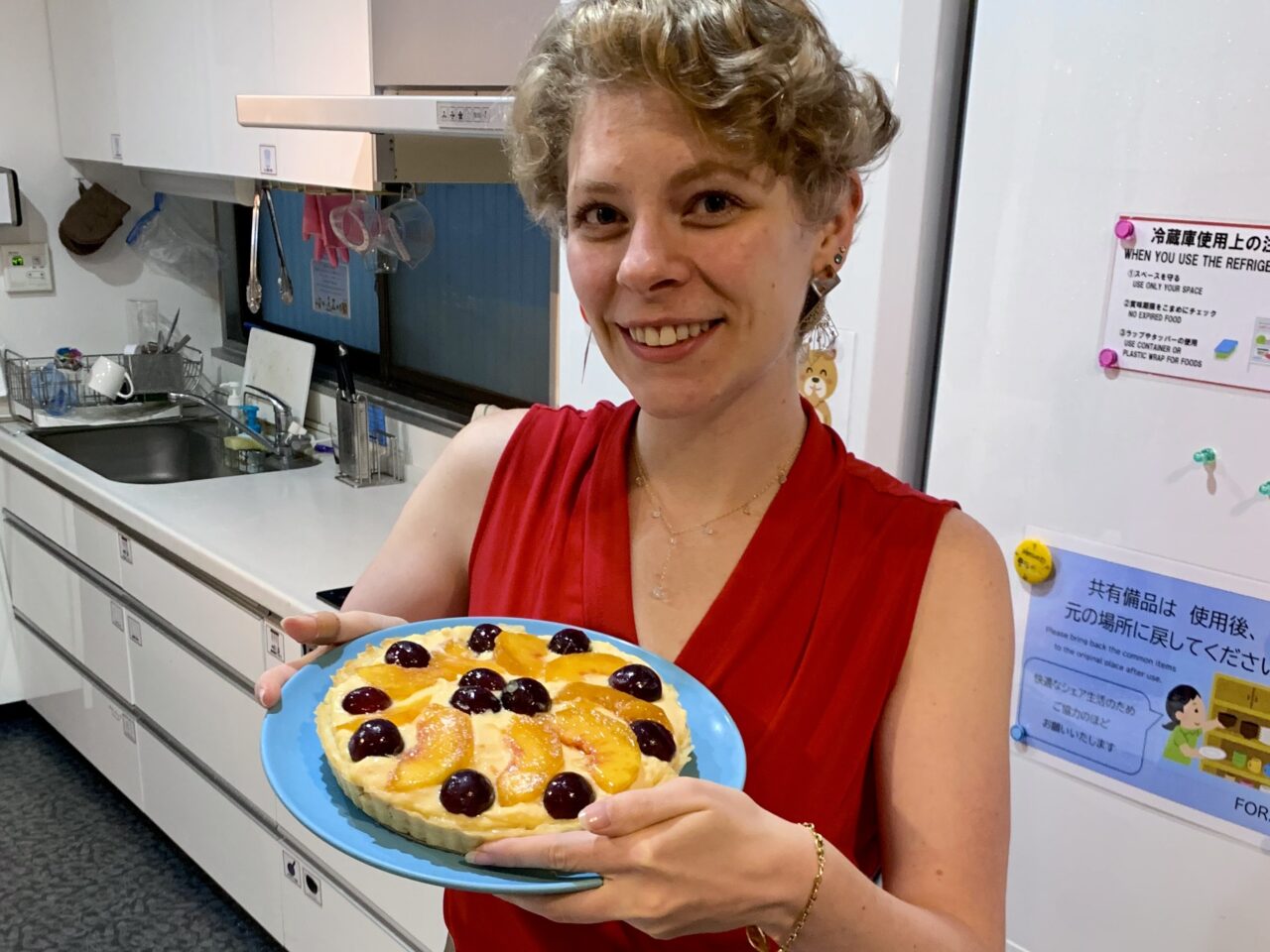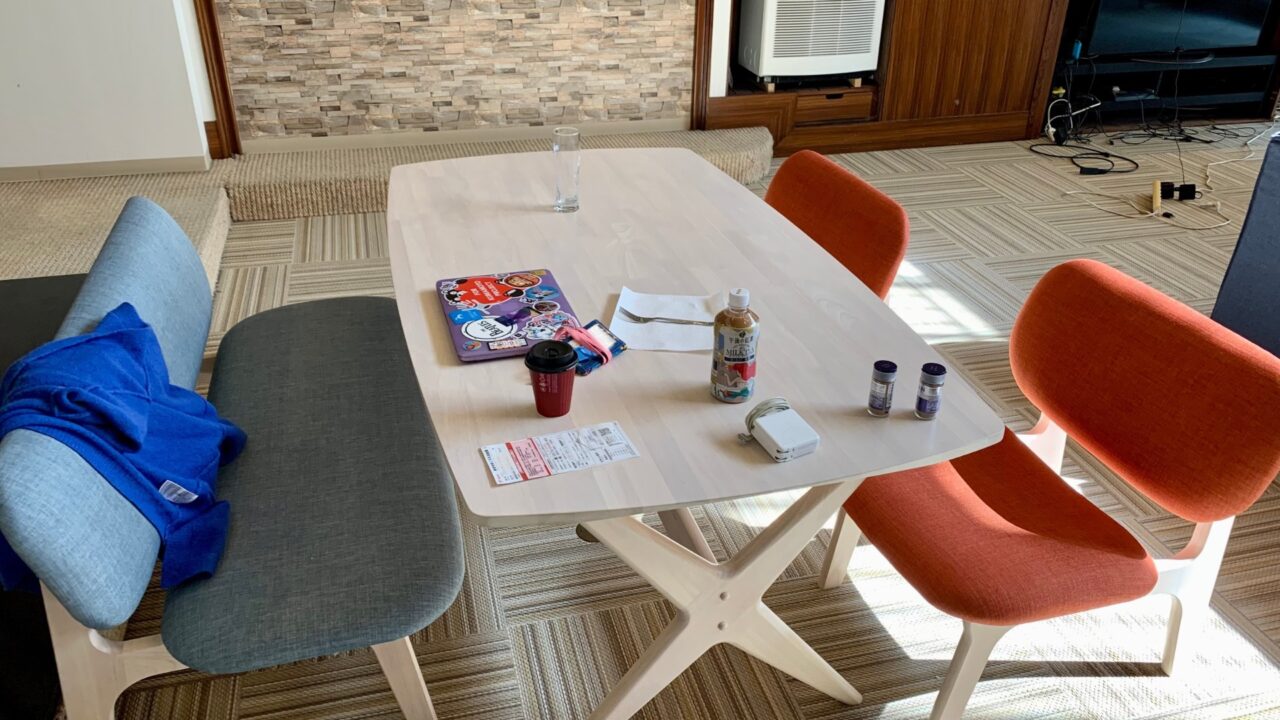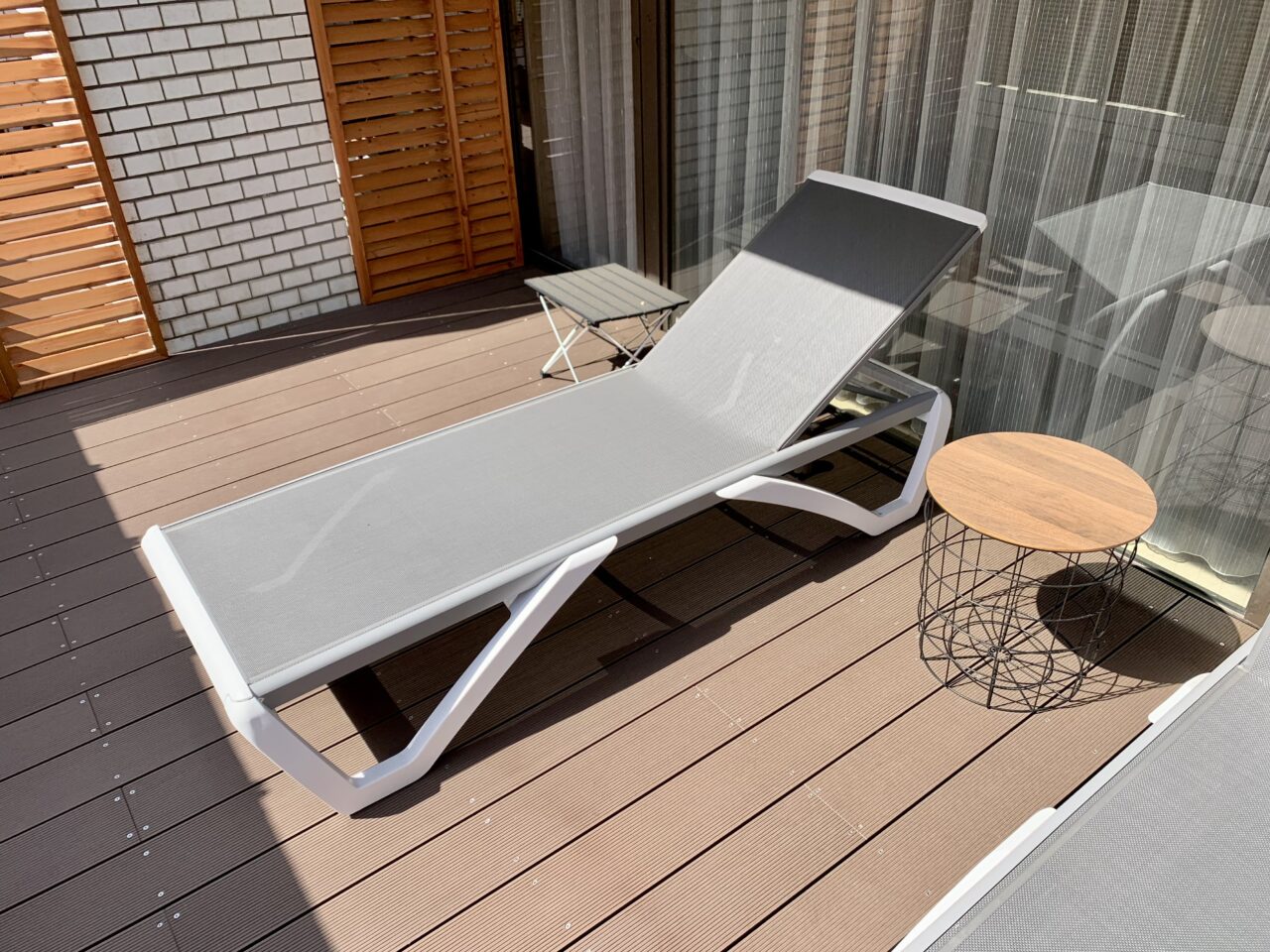Japanese Share Houses- Are They Right for Me?


Written by
Name: Stephanie
Country of origin: USA
How long you’ve lived in Japan: 6 years
Where you live in Japan: Tokyo (and 1 year in Gunma)
Instagram
What Is a Share House?
A share house is a fairly common accommodation in Japan, especially cities. We don’t really have them in the USA, but I’d say they’re like a cross between an apartment and a dormitory. You (usually) get your own room, but other facilities are shared, making it much cheaper than an individual apartment.
Who Can Get a Share House?
Almost anyone can get a share house! Many have an age cap at the late 30’s. I lived in a share house when I was 30 to 32 years old, and my housemates were anywhere from 20 to late 30’s. Most share houses have less strict visa and income requirements than apartments, making them ideal for students, freelancers, job seekers, and the like. Some share houses are female-only, but many are co-ed. Share houses are also significantly less likely to deny someone a room based on nationality (a legal practice which is common with apartments).
Types of Share Houses
In addition to co-ed and female-only share houses, there are two main share house room types: dormitory style and private room. I’ve never seen a dormitory style room in person, but the photos online look uncomfortable for an extended stay. They seem to be a collection of bunk beds with little storage space. That said, they always run cheap. Private rooms are much more common. In this style share house, you’ll get your own private bedroom with a bed and usually a wardrobe and desk, and other facilities such as toilets, showers, and kitchens are shared.

What Are the Pros of Share Houses?
There are really a lot of pros about share houses, especially for younger people or people just starting out! From the potential to make friends quickly, to the variety of facilities, to furniture, to the cost and ease of renting, they’re a worthy housing option.
Friends From the Get-Go
First, one great thing about share houses is the possibility to socialize from the beginning. It’s not a requirement, as some tenants I shared with were introverted, but it’s an easy option for meeting people. One common complaint about moving to Japan is the difficulty of socializing and making new friends, but living in a share house gives you the opportunity to connect with a variety of people from day one! In my share house, there were of course many Japanese people, but there were also people from various Asian, European, and American countries! I made many friends at that time, as you may have noticed from the silly cover photo, which was valuable to me because I moved to Tokyo at the beginning of the corona pandemic so socializing was otherwise difficult.
Furniture and Facilities
Next, if you get an apartment (as I’ve written in previous blogs), it comes with quite literally nothing. No refrigerator, washing machine, of course no furniture, and sometimes not even a light! Getting a furnished apartment is quite rare in Japan, and if you do happen to get one, you’ll pay dearly for it. Cut to share houses, you have everything you need! A bed is standard, and most private rooms have a desk and a wardrobe. There is also generally a shared living room with a TV and some sofas or tables, and washing machines as well. My share house even had a giant balcony with lawn furniture, as well as a workout room with yoga mats and soundproofing!
Also, you don’t need to buy kitchen appliances or supplies! Refrigerators, pots and pans, dishes and silverware, microwaves, toasters, and electric kettles more or less seem to be standard. Many share houses even have ovens so you can bake! Compared to apartment kitchens, share house kitchens are usually quite big, I guess with the understanding that multiple people are sharing it. I honestly miss my share house kitchen to this day.

Cost and Contracting
Another benefit: the cost of a share house will always be cheaper than an apartment in the same neighborhood. Not only that, but many share houses don’t charge you the silly fees that apartments charge you to rent up front. (If you’ve been following Asami’s social media or this Aikagi website for a while, you may know about “key money” and similar pointless charges that can add up to hundreds or even thousands of dollars.)
In regards to starting a contract, they often do not require a guarantor. A guarantor is usually a company you pay that basically guarantees to the landlord that they’ll pay your rent if you ever don’t. Almost all apartments require them, so it’s nice to save some money here when getting a share house room. Contract lengths are much more attractive as well. Most apartments run on 2-year contracts, but share houses can range from 1- to 6-month contracts. You can usually specify the length of the contract that works for you with the share house agent. This makes share houses a great option for students or workers who will stay in Japan for less than two years.
What Are the Cons of Share Houses?
Of course, nothing in life is perfect, and there are some cons to share houses that should be considered along with the good. From more rules to messy housemates, you’ll want to think about these points before jumping in.
Rules Aren’t Made to Be Broken
Living in a shared space is obviously a bit more complicated than living alone in many ways. To try and make things smoother for all residents, most share houses have rules in place. Some share houses have a no-guest policy, and most have a no sleepover guest policy, although I toured some that you were allowed to let a friend (of the same gender) stay once a month or so. If you’re living in a female-only share house, you cannot bring men into the share house at all (not even your dad visiting from out of town).
One nearly universal rule is trash duty rotation. Once every few weeks you’ll be responsible for putting out the trash and recycling in the designated spot on the set mornings. This could be an issue if you travel a lot, but sometimes I would swap duties with a fellow tenant in those cases.
In addition to that, there are general cleanliness rules or etiquette. Wash your dishes upon use, don’t leave the toilet or shower messy, things like that. I actually got a lot better about not letting my dishes pile up because I didn’t want to be a bother.

Human Relations
Speaking of cleanliness, germs! If you’re a germaphobe, a share house might not be for you. Of course, I’d guess most share houses must be reasonably clean, but if you’re the type of person that germs really bother you, an individual apartment may be the better option.
You may also have a messy housemate. Before moving to Japan, you might think “Japan looks so clean on the internet, Japanese houses and people must be so clean and quiet!” You might even think “All the mess and noise must be from foreigners!” Well, let me tell you, living in a share house will bring you down to reality quickly. Of course, Japanese people are human, and so are foreigners. Living with so many people, I experienced quiet, loud, clean, and messy people, and those personalities were mixed between Japanese and foreign housemates.
When it came to handling unpleasant situations, as someone from the United States, I like to tackle problems head-on. I try my best to grit through the discomfort of confrontation and approach the situation honestly yet politely. I would often try to face the issue head-on, but this made me some enemies in the share house.
In Japan, confrontation is frowned upon. There are tons of underlying cultural reasons for this which I won’t speak to now, but the fact of the matter is that directly approaching an interpersonal problem is usually not the way to go. Sometimes people here may seem passive-aggressive if they don’t like something you’ve done, and I’ve read some posts online that people felt like they were being bullied, so this is a dynamic you may experience living in a share house.
If you experience an issue with a housemate, whether it’s cleanliness or behavior, it’s best to email the sharehouse management company about the issue. They will often print or send notices to all residents as a general warning, and sometimes they will confront the resident in question to try and solve the issue.
How Can I Find and Rent a Share House?
So you’re ready to check out share houses. You’ve considered the risks and find the benefits really attractive. I don’t blame you! I lived in a share house for my first two years in Tokyo.
There are various websites for share house listings, but one that I’ve heard time and again since I’ve lived here is Oakhouse*. I didn’t rent from them myself, but I’ve heard only good things about them through friends and coworkers, and checking their website, they seem to have a lot of listings and a very smooth rental process!
Discover Tokyo’s vibrant lifestyle with Oakhouse! From trendy Shinjuku to historic Asakusa, find your perfect share house or furnished apartment. Enjoy flexible contracts, fully-equipped spaces, and a welcoming community. Ideal for students, professionals, and expats seeking affordable, social living in Japan’s capital.
Affiliate Disclosure: We may earn a commission for bookings made through our Oakhouse links, at no extra cost to you.
There are no restrictions on employment or student status, nor are there visa restrictions! (You do need a valid visa, of any type, and need to present your passport or residence card as ID). The contract lengths vary from 1 to 6 months, and neither a guarantor nor insurance is required. The startup fee is just a 50,000 JPY contract fee, no key money or other administrative fees, which is a really great deal!
If I were in the market for a share house again, I would definitely try Oakhouse. And, who knows, maybe when it’s time for me to prepare to leave Japan, I might get a short-term contract in a share house after my apartment contract ends, so I’m definitely going to remember Oakhouse. I hope you do too!
Happy hunting, and best of luck in your upcoming move!
*I have no affiliation with Oakhouse, but Asami, Aikagi’s website owner, has an affiliate link. She will receive a commission if you click her link.



